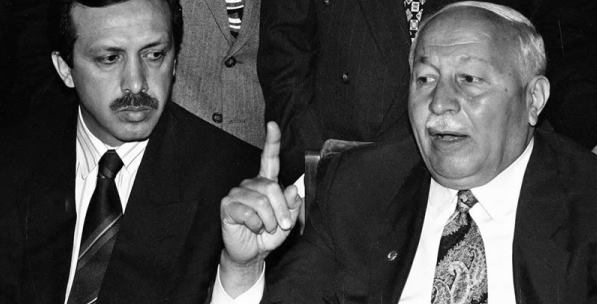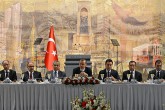The Turkey of the 1990s was shaped by the economic depression, violation of rights, security concerns, political chaos and conflicts. It was a period of time in which the bureaucratic oligarchy ruled the sphere of politics as searches for an identity-based social justice came to the foreground. A difficult period it was; Turkey had lost prestige in her region, had been perceived as the spokesperson of the American interests, her foreign policy was indexed to the fight with the Kurdistan Workers’ Party (PKK) and had failed to recover from the Cold War psychology.
This difficult term caused trauma mostly among the pious and Kurds. Unfortunately, a group of the religious Kurds has never recovered from the effects of this trauma. Social sects, who have never given up on the power strategies that they generated no matter what it takes, have always been in under-handed conflict with the realities and political actors of the new period. This conflict has existed always. Sometimes it has come to light and sometimes not, but has existed always.
ISLAMISTS’ QUEST FOR RULERSHIP
Although the Islamists made their presence felt in the political arena in the 1970s, for the first time in the history of the Republic, they seriously became an alternative to the rulership in the 1990s. The Kemalist state apparatus and the international system, with all their mechanisms, tried to stop this process, and the grievous incident, which we called the February 28, 1997 Post-Modern Coup, occurred. However, no matter what happens, Islamists have set the main course of the political life in Turkey. Although the largest sphere of the Islamists consisted of the representatives of the “political Islam” on the line of the National Order Party (MNP) – The National Salvation Party (MSP) -The Welfare Party (RP), there are, without doubt, other actors in the field. To some, the communities sometimes representing the “social Islam” and the “cultural Islam” at other times stood out as the representatives of this Islamist sphere.
The Islamists, just like Kurds, suffered the trauma of the 1990s at all levels. They went through painful, conflicting, difficult years and traveled tough roads. In the process, two power strategies, two main routes, two mentalities and two structures came out. The tension that the country experiences today is between these two structures.
The 1990s was a period shaped by the essentialist identity politics. In this period, the RP was doing politics as it sought a rulership based on “party politics,” while on the one hand it was attributing to democracy and the power of the Islamic identity on the other. In fact, the RP came to power in 1996 and the late Necmettin Erbakan took the Prime Ministry seat. The 1990s was at the same time a period of the rise of religious communities who were involved in community service by ascribing to the power of the Islamic identity. However, the civilian and the armed bureaucratic apparatus of the Kemalist hegemony were quick to otherize the “Islamic rise” and intervened in the process through the Feb. 28 post-modern coup.
In fact, the dynamics of today have started to shape in the process that led to the February 28 post-modern coup and afterwards. As one examines which processes the ruling Justice and Development Party (AK Party) today has passed through to come to power, and the story of how it has transformed from the politics of identity to the politics of service, one will find out the importance of its emphasis on the economic growth and stability, of its efforts to build liberal political style and of its success of formulizing itself as the party of masses. For the same reasons, the AK Party has been in power for the last 11 years. The AK Party government has chosen to give a fight against the “open organization” within a structure of “accountability” by using the party politics. The party has taken political risks and reached today.
RELIGI
In this article
- Domestic Policy
- Opinion
- 1970
- 1990
- 1996
- 1997
- Cold War
- February 28th Post-Modern Coup | 1997 Turkish Military Memorandum
- Global Actors | Local Actors
- Gülen Movement
- Hegemony
- Identity Politics
- Islam
- Islamic
- Kemalism
- Kurdistan Workers' Party Terrorist Organization (PKK)
- PKK - YPG - SDF - PYD - YPJ - SDG - HBDH - HPG - KCK - PJAK - TAK - YBŞ
- Terror
- Türkiye's Justice and Development Party | AK Party (AK Parti)



